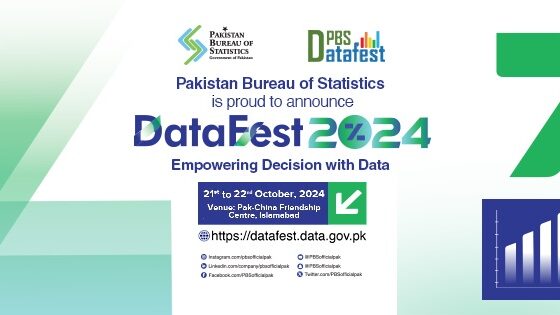“Some ideas come once in a lifetime — for Jawwad Paracha, they come often.”
In an exclusive conversation with Computerworld Pakistan, Jawwad Paracha reflected on the moments that have defined his journey and made him a prolific technology inventor in Pakistan. The Friday “invention hours” at IBM, the patents that turned into products, and the ideas that leapt from lab benches to global markets. His story is not about creating technology, but what it takes to carry an idea all the way from spark to scale. It’s a pattern he’s lived for nearly two decades: a daily problem Pakistani’s mostly face, spark of curiosity, a sketch on paper, a prototype taking shape, and eventually, a solution finding its place in the world. Over his 17-year career, that spark has ignited time and again, guiding him through a cycle he knows instinctively, and making him one of the top technology inventors in the 78-year history of Pakistan.
Invention: The First Spark
Every breakthrough begins with a spark of invention the moment when an idea first takes shape, raw but full of possibility. For Jawwad Paracha, that spark has ignited time and again over his 17-year career, setting into motion a cycle he knows intimately; beginning with invention, the essential first step before innovation takes flight. For Jawwad, the path into technology wasn’t accidental.
“I pursued technology and invention because I’ve always been passionate about solving complex problems, and put Pakistan on the map of inventors.”
That passion has taken him to the forefront of the global tech industry, managing large-scale transformation programs across 170 countries and leading innovation centers for IBM. A turning point came in 2016–2017 when he completed a comprehensive IBM course on the art of inventing. “It gave me a new way of thinking and inventing. I saw the potential to solve many of the problems around me through the use of technology,” he recalls. From that point on, filing patents became part of his process, not as a formality, but as a way to protect and nurture ideas until they could become solutions. By 2024, he had achieved 20 patents and publications at IBM, received four top industry awards in a single year, and added milestones like the Plateau Invention Achievement Award to his name.

One of the only ones from Pakistan.
Recognition such as the IBM Top Tech Contributor Award and the Engineering Excellence Award has fuelled his motivation, but he remains driven by the work itself. He adds,
“The potential to create solutions that drive sustainability, enhance operational efficiency, and solve real-world problems motivates me”

Innovation: Shaping Ideas into Solutions
For Jawwad, invention is only the starting point. Innovation is where an idea begins to grow into something functional, scalable, and impactful. “My creative process begins with observing the problems and challenges around me, identifying a gap or inefficiency in existing technologies. Most of my invention ideas have come from problems faced by citizens of Pakistan.” he explains.
“I conduct thorough research, collaborate with experts, and brainstorm solutions. We then refine ideas based on feedback and data analysis. This iterative process helps shape ideas into practical inventions that solve tangible problems.”
One example is his AI and IoT-based system to predict illegal deforestation an idea born from the need to protect forests before damage occurs. Through iterative testing, expert input, and technical refinement, the concept evolved into a system capable of monitoring forest health in real time and predicting threats before they escalate.
Commercialization: Turning Prototypes into Products
An invention’s real power emerges when it moves beyond theory and into the hands of those who can use it. For Jawwad, this step is about making solutions practical, accessible, and deployable. His speech-to-media translation tool is a prime example. The inspiration came during a visit to Tharparkar, Sindh, where he encountered communities facing language barriers and limited access to information. “I recognized the communication barriers faced by individuals who speak different languages or have hearing impairments,” he recalls.
The resulting invention uses advanced natural language processing algorithms to transcribe and translate speech into multiple formats in real time — subtitles, audio translations, and text overlays relying on live audio feeds, pre-recorded content, and streaming data. The AI improves continuously, learning from new datasets to enhance translation accuracy and integrate seamlessly with different media platforms.
Adoption: Making a Real-World Difference
Once a product is ready, adoption happens when people and organizations start using it to solve real problems. Jawwad’s speech-to-media translation system has the potential to bridge communication gaps not only in Pakistan but globally. This technology could transform accessibility in broadcasting, education, public services, and even emergency response. He explains,
“The patent aims to improve real-time communication and understanding between people who speak different languages or have varying degrees of access to communication tools”
The same is true for his deforestation monitoring system, which could be deployed by governments, environmental agencies, and NGOs to protect ecosystems before irreversible damage occurs.

Diffusion: Scaling the Impact
Diffusion is when an innovation moves beyond its initial users and spreads across regions, industries, and communities. Jawwad’s career has been defined by this stage, with his projects influencing work far beyond Pakistan’s borders. He has led global teams across 170 countries, integrating diverse perspectives and fostering inclusive solutions. His leadership extends into regulatory and compliance arenas, including implementing DORA regulations in the EU, advancing AI-driven forest monitoring systems, and leading NIST compliance initiatives at IBM. But he is candid about the challenges in Pakistan’s innovation ecosystem. “We lack BIG time in overall patents in Pakistan and we need to get this number higher,” he says. His recommendations are clear;
“Strengthening public–private partnerships, increasing investment in technology education, creating platforms to support young inventors, and implementing policies that promote startup growth and R&D is the way forward.”
The Mindset Behind the Cycle
Balancing a demanding leadership role with a passion for invention takes intentional effort. “Normally we dedicate Fridays of every week, I call them inventing Fridays,” Jawwad says. These dedicated sessions give space for experimentation and creative thinking outside the pressures of day-to-day operations.

Outside of work, he is an avid long-distance runner, endurance cyclist, hiker, and certified scuba diver. These activities are not just hobbies but part of his approach to maintaining mental clarity and focus. “Endurance sports and scuba diving keep me mentally and physically fit, which enhances my productivity and focus at work,” he says. Jawwad plans to pursue a PhD in AI and IoT in 2025, deepen his work on sustainability-driven projects, and explore inventions in space technology.
For Paracha, invention is not just the first step in the journey, it is the heartbeat that keeps innovation alive, driving ideas from a single spark into solutions that scale and spread across the world. His advice to aspiring innovators is direct and grounded in experience;
“Stay persistent, embrace failure as part of the learning process, and seek mentorship from experienced professionals. Focus on solving real-world problems and stay curious. Collaboration and continuous learning are key to success.”
As Computerworld Pakistan turns thirty we want to celebrate Pakistan’s technology industry and its forthcoming rise and tell those stories which we think are really important for 2025 and starting with a few that CWPK Academy/SPIN Studio release this year, is an exclusive interview with Jawwad Paracha, Inventor at IBM, who talks about invention as the first step to the innovation lifecycle.
Interview conducted/edited by Aqsa Tariq, Editor in Chief, Computerworld Pakistan (Smart Pakistan Insights Network).









